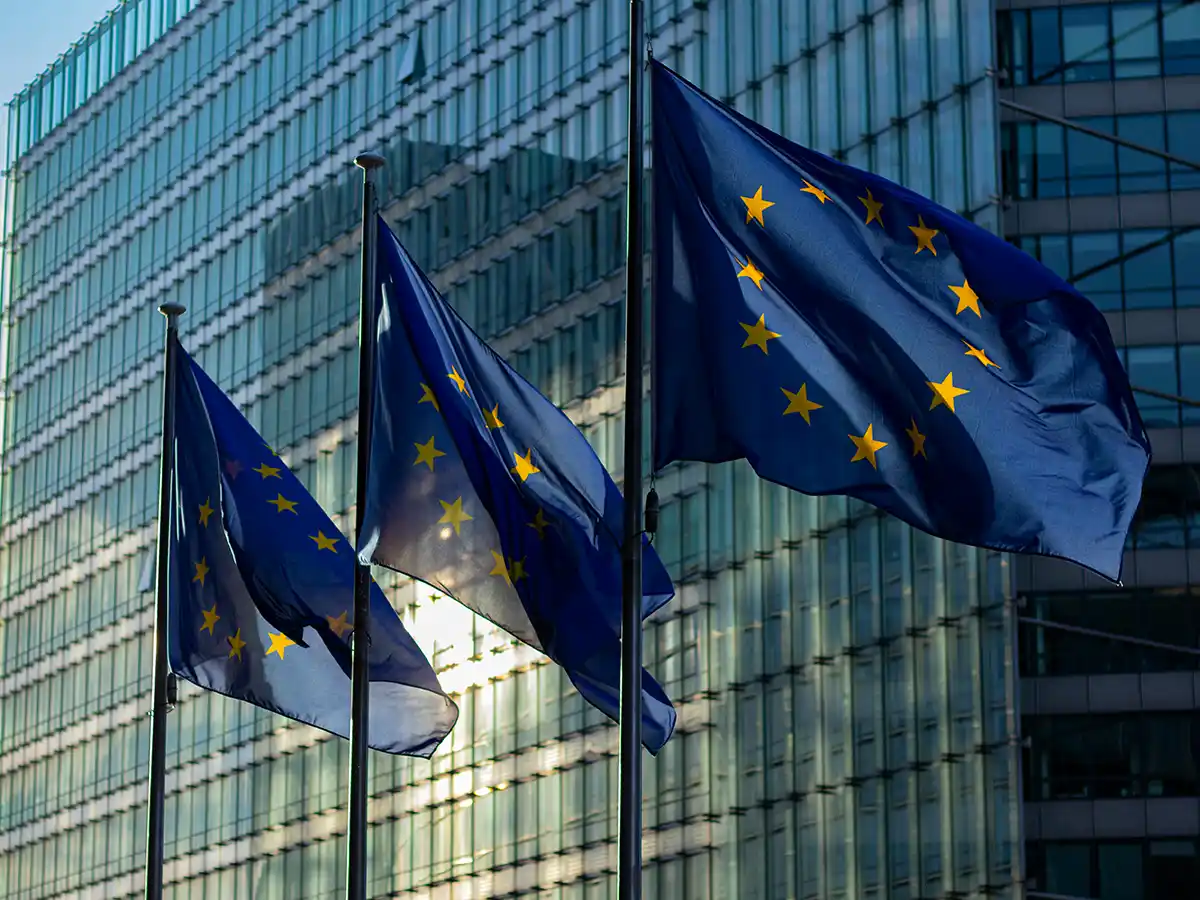
The autumn tax package
The National Assembly adopted on November 21 the legislative proposal on the autumn tax package as well as the proposal on the introduction of the Global Minimum Tax in Hungary. In our newsletter, we will summarize the significant changes.
VAT
The long-awaited draft VAT return is coming. Detailed regulations related to e-receipts have been published. Within the European Union, taxpayers will be able to opt for the small business exemption even when conducting business abroad. The scope of VAT exemptions and products/services subject to reduced VAT rates is expanding. Online events fall under the same place of supply rules as services provided electronically. Stricter regulations apply to those handling import VAT settlement through an indirect customs representative.
The introduction of the draft eVAT declaration will be implemented, and its application will not be mandatory. Taxpayers will have two ways to utilize the assistance of the tax authority. One option will involve finalizing and approving the VAT return draft offered electronically by the National Tax and Customs Administration (NTCA) in a designated platform. The draft will include the calculated deductible VAT, but the exercise of VAT deduction rights will require a declaration by the taxpayer. The draft will need approval from the legal representative or the authorized proxy, although secondary user rights (e.g., an employee) may be granted to modify the data in the draft. The other option allows the taxpayer to transmit document-level data through a machine interface, in a data structure determined by the NTCA. The NTCA system will generate a return draft from these data, which can be reviewed and approved electronically. The principle of ‘silence gives consent’ will not apply in either case; only the approved draft will be considered a return. For eVAT declarations, there will also be a possibility for self-revision on the provided platform. The new eVAT declaration will be applicable for the first time for the reporting period including January 1, 2024. The option for traditional reporting and self-audit will remain available.
From January 1, 2024, the legislator extends the obligation for online data provision to receipts. Starting in June 2024, a new generation of online cash registers capable of issuing e-receipts, called e-cash registers, will be introduced. An e-receipt is considered as issued upon its arrival in the electronically accessible receipt repository by the buyer. Buyers without smartphones need not fear discriminatory treatment: upon request, the seller must provide a paper-based copy. Simultaneously, the option to issue paper-based receipts will continue to be available. For receipts issued without an e-cash register, data must be provided electronically to the National Tax and Customs Administration (NTCA) within three calendar days, by the provisions of Annex 11 of the VAT Act. The Hungarian VAT law also establishes the regulations on receipt-correction documents to which similar content requirements applies as to the invoice-correction document.
An important change is the ‘internationalization’ of the small business VAT exemption. The EU legislator has created the possibility for a taxable person established or residing in one Member State to opt for the small business exemption in another Member State, where they are not established, without VAT registration, provided that their annual EU-wide turnover does not exceed €100,000 in either the preceding year or the current year. This group of taxpayers will be identified by their Member State of establishment’s tax authority, issuing them a special identifier with the suffix ‘EX’. According to the legislative amendment, a taxable person operating as a VAT-exempt entity abroad cannot deduct input VAT related to transactions carried out abroad. However, taxable persons established in third countries but settled in Hungary cannot opt for the small business exemption. The good news for taxable persons who have chosen small business exemption is that, from 2025, they can issue simplified invoices. Additionally, foreign VAT-exempt taxable persons operating in Hungary are not subject to the obligation of online invoice data reporting.
The range of products and services covered by reduced VAT rates is expanding. Starting from 2024, the import of artworks listed in Part I of Annex 8 of the VAT Act falls under a 5% VAT rate, while ‘dessert-like cheese products’ determined by the customs tariff number will be subject to an 18% VAT, including sales of products like ‘túró rudi’. Sales of dental prostheses and the transport of injured or ill individuals with official permission will be VAT-exempt, provided that the latter is conducted specifically with equipped transport for this purpose. For official procurements by diplomatic and consular missions, the annual tax exemption threshold increases from 300,000 forints to 600,000 forints.
The legislator has amended the rules concerning the place of supply related to events, taking into account that for online events, the service is not consumed at the location where the event is held. From 2024, when ensuring participation in an online event, the general rules for the place of supply must be applied. This means that for B2B supplies, the service will be subject to VAT at the place of establishment most concerned with the performance. In cases where the customer is not a taxable person (B2C) and participates in the online event, the VAT on the participation fee will be determined based on the place of establishment of the customer (and not the location where the event is held).
The right to deduct import VAT through an indirect customs representative will be subject to stricter conditions. The legislator aimed to limit this possibility to reliable taxpayers with a registered history of significant economic performance of at least three years. However, if the indirect customs representative holds AEO permission, the importer would still only need to declare without limitation their entitlement to VAT deduction. In each case, there will be an expansion in the mandatory content of the declaration concerning the right to VAT deduction.
In the case of installation and construction services connected with immovable property (according to the new term, ‘activities connected with immovable property’), if the works performed by the contractor are subject to (any) official permit, the contractor will be obligated to notify the customer about this fact in order to apply the domestic reverse charge. (Currently, it is the customer’s responsibility.)
Corporate Income Tax
The rules governing investments serving energy efficiency goals are changing, as well as the definition of controlled foreign companies, stricter conditions will apply for royalties and interest paid to entities in tax havens to be recognized as business expenses, . The legislator clarifies the concept of related companies and modifies the conditions under which a request for claiming the development tax incentive must be submitted to the Ministry of Finance.
There might be an issue with calculating the amount of tax benefits for investments in energy efficiency when the cost of an investment that enhances energy efficiency cannot be determined as the acquisition cost of a specific tangible or intangible asset. Instead, the taxpayer considers the additional costs incurred compared to a less energy-efficient investment. The current Corporate Tax Act does not stipulate what constitutes a less energy-efficient investment or against what benchmark the additional costs should be determined. Therefore, the legislative amendment introduces the concept of ‘alternative investment or renovation’ and defines what qualifies as additional costs compared to alternative investments. The upper limit of the tax benefit increases from 15 million euros to 30 million euros. The maximum benefit can only be claimed up to 50%if the taxpayer determines the eligible costs based on the investment or renovation directly related to achieving higher energy efficiency without applying the calculation methods for ‘additional costs’ as defined in the law. There will be no tax benefits if the energy investment serves compliance with prevailing EU regulations, supports connected energy production, district heating, and district cooling, or involves the installation of energy-producing assets not using green energy. However, the new regulations allow tax benefits for energy-related investments made on buildings if they improve the building’s energy efficiency to the extent prescribed by law. The regulations also clarify which costs cannot be considered for tax benefits.
The regulations concerning foreign permanent establishments that do not qualify as controlled foreign companies have been amended. From 2024, a permanent establishment abroad of a foreign entity will not be considered a controlled foreign company if it is tax-exempt or not subject to taxation in the state of residence of the foreign entity.
As a general rule, royalties or interest paid to persons, entities or permanent establishments in so-called non-cooperative states or in states where there is either no corporate tax or it is less than 9%, will not be recognized as business expenditures for Hungarian corporate income tax purposes up to the extent of tax advantage (unpaid tax) compared to Hungarian corporate tax. The taxpayer is exempt from this prohibition if they can prove, as described by the legislation, that the primary purpose of the occurrence of royalties or interest in the tax year is a real economic or commercial benefit beyond tax advantages. Alongside the new non-deductibility rule, Section A) point 9 of Annex 3 must also be applied, in order not to doubling the tax base adjustment.
The legislator specifies that in the specific cases of related companies (e.g., controlled foreign companies, hybrid structures), subsidiaries are also considered related companies.
The investment threshold for claiming the development tax incentive, where a request must be submitted to the Ministry of Finance, will increase to the equivalent amount of 110 million euros in Hungarian forints. From 2024, the condition related to the requested state aid will no longer be specific to investments carried out by SMEs in Budapest; instead, it will apply to all municipalities based on whether the investment is realized in a regionally supported area according to the regional aid map.
Global Minimum Tax
In order to comply with the relevant Council Directive of the European Union and the OECD Model Rules on the global minimum tax (GloBE), Hungary will introduce GloBE as of 1 January 2024. This means that the so-called Income Inclusion Rule and the Qualified Domestic Minimum Top-Up Tax will come into effect from 2024 while the Untertaxed Profits Rule will become effective on 1 January 2025.
Hungary will base its qualified domestic top-up tax on the GAAP companies use for local statutory reporting purposes. Having said that, if applicable, the qualified domestic top-up tax will be determined based on the local GAAP and the Hungarian subsidiaries of a relevant group will be able to calculate and possibly pay their global minimum tax in Hungary with the Ultimate Parent Entity being exempted from making the calculations on behalf of the Hungarian subsidiaries. Furthermore, Hungary will introduce an own definition regarding covered taxes which can be taken into account when calculating the effective tax rate for GloBE purposes and covered taxes would include e.g. corporate income tax, local business tax, innovation contribution and tax on energy suppliers. The GloBE information return can be disclosed in Hungarian or English and the top-up taxes can be paid in HUF, Euro or US dollars.
Personal Income Tax
Some of the changes coming into effect in 2024 are related to the termination of the US-Hungarian tax treaty. Additionally, the legislator considered individuals who are chronically ill or severely disabled, executives and employees of start-up companies, individuals managing their assets through asset management foundations, as well as individuals fond of lottery-based games of chance. Quarterly reporting of fringe benefits and certain specified benefits will provide administrative relief for employers.
One of the changes related to the termination of the US-Hungarian double taxation treaty as of January 1, 2024, is that in the absence of a tax treaty, for income derived from abroad by a resident individual in Hungary (e.g., investment income, particularly dividends), there will be an opportunity to offset the tax paid abroad. The definition of the place of income realization is also being modified to ensure that income derived by a foreign performing artist from activities in Hungary is subject to taxation in Hungary, even if the artist performs on behalf of a sole company.
The legislative amendment associated with the termination of the US-Hungarian treaty stipulates that the provisions concerning other income do not apply to income derived from securities issued by an individual resident in an OECD member state, as well as interest paid by an individual resident in an OECD member state.
In the future, the scope of investment service providers currently operating in the EEA and treaty countries will be extended to include investment service providers operating in OECD member states. Thus, merely holding a securities account with an investment service provider operating in the US may classify the resulting income as controlled capital market transactions starting from 2024.
A favorable change from 2024 is that the tax on fringe benefits and certain specified benefits will only need to be determined, declared, and paid by the payer every quarter. Furthermore, aiming to increase interest in gambling, winnings from lottery-based games (such as lottery prizes) will be exempt from personal income tax.
The legislator clarifies that in the case where an individual receives “in-kind” income (i.e., services provided to them without compensation), the time of deriving the income is the day when the document regarding the service is available. However, if the provider of the service is different from the one rendering the service, it is the day when the entitlement to receive the service is obtained.
The condition for the benefit for mothers under 30 years old will require a declaration from the mother under 30 years of age, indicating the grounds for eligibility for the benefit, the child’s name, tax identification number, in the case of a fetus – the period of pregnancy, the start or end date of eligibility, if the entitlement did not exist for the entire year.
An increased amount of family tax benefit can be claimed with respect to individuals who have reached the age of 18 and are chronically ill or severely disabled.
The amendment benefits executives and employees of start-up companies as they are not subject to personal income tax if they receive shares in the start-up company for free or at a reduced price.
Social Contribution Tax
The legislator specifies that the exemption from social contribution tax does not apply to income retrospectively paid to individuals considered foreigners according to the Act on Social Security in the case of income that was paid for work previously performed in Hungary.
Social Security Contribution
In the case of employing a person from a third country, if Hungary does not have taxation rights based on an international treaty or, in the absence of a tax treaty preventing double taxation, there is no obligation to determine advance tax, only the income earned/accounted for in the respective month constitutes the basis for contributions, and there is no need to consider the national gross average wage for July of the previous year.
Simplified Employment
According to the legislative change, the tax to be paid under simplified employment qualifies as a social contribution tax, with the condition that tax benefits cannot be applied to it.
Small Business Tax (‘KIVA’)
The upper limit for the tax benefit that can be claimed for researchers or developers holding a PhD or higher scientific degree, or a scientific title, will be equal to two times the current minimum wage instead of the fixed amount of 500,000 Hungarian forints.
The small business tax status ceases even if the private limited liability company transforms into a publicly traded limited liability company. The date of cessation, in this case, is the day preceding the day of the change in form.
In cases of mergers or demergers that do not qualify as preferential transformations for corporate income tax purposes, and carried out at the book value, there is no need to wait for the 24-month period to re-opt for the small business tax. Within 15 days following the merger or separation, the small business tax can be opted for if the taxpayer meets the conditions for small business tax eligibility. For continuity purposes, in such instances, the small business tax status is established on the day following the merger/separation. The taxpayer affected by the merger or demerger is entitled to carry forward the unused loss carried forward in proportion to the participation interest according to the asset balance sheet.
Excise Tax
An important change concerning excise tax is that the excise tax refundable annually by diplomatic and consular institutions will increase from the current 300,000 forints to 600,000 forints. Additionally, more excise tax refund will be available for operators of vehicles with a permissible total weight of at least 7.5 tons (semi-trailer trucks) and buses. For diesel fuel loaded through fuel cards or on-site refueling, the excise tax refund per liter, currently at 3.5 forints (or 10 forints if the Brent crude oil price does not exceed $50 per barrel), will increase in the future to 10 and 20 forints per liter, respectively.
Advertising Tax
The proposal extends the general exemption from advertising tax until December 31, 2024. There is currently no discussion about repealing the advertising tax altogether.
Retail Tax
A new regulation regarding the retail tax states that for tax years shorter than 12 months, the taxpayer must annualize the pro-rata taxable base for the tax year and then calculate the applied tax amount based on this annualized base using the rate scales.
Local Business Tax
Manufacturers and distributors are affected by a change effective from January 1, 2024, stating that the net revenue for local business tax purposes will no longer include the amount accounted for as revenue from the return deposit system under waste management law. In line with this, the returned deposit under waste management law will not be included in the cost of goods sold. Manufacturers and distributors are to be considered as defined by waste management law in this regard.
Real Estate Transfer Tax
Starting in 2024, no transfer tax will need to be paid on the purchase ofa property if the Family Housing Support (CSOK) was used for financing the purchase. Additionally, the tax base (the market value) up to 80 million forints will be exempt from the real estate transfer tax for properties acquired through CSOK Plus loans.
Transfer tax exemption will also be granted if a private entrepreneur transfers their assets to a sole company or a single-member company. The exemption applies if the asset transfer is completed by December 31, 2025. This exemption is considered a de minimis state aid.
Utility Network Tax
The legislator plans to phase out the utility network tax in two steps. Owners and operators of telecommunication networks will find relief starting from January 1, 2024, while for other utility networks, the tax of 125 forints per meter will cease from January 1, 2025.
Changes in Tax Procedures
The NTCA will be granted new competences concerning electronic cash registers. Companies commencing their activities during the tax year no longer have to wait until the penultimate month of the tax year to join the tax group. Individuals can only be listed on the NTCA’s “blacklist” for tax arrears or debts exceeding 100 million forints. Furthermore, administrative simplifications aid taxpayers, while regulations regarding financial representation undergo stricter enforcement.
Regarding electronic cash registers, the NTCA will act as the authorizing authority and will also exercise supervision and control. The amendment includes provisions for the disclosure, management, transmission of data received through electronic cash registers, and the preservation of data forwarded to the central electronic register. In connection with this, the penalty system under the Act on Rules of Taxation expands concerning violations related to electronic cash registers, along with potential penalties for non-compliance. The fine’s maximum amount of five hundred thousand, one million, or ten million forints depends on the nature of the infringement and the identity of the infringing party (whether a natural person or another taxpayer).
From 2025, for those taxpayers opting for small business VAT exemption in Hungary and choosing not to take advantage of the new option to operate similarly in another EU member state, the domestic VAT registration must be completed within 15 days by the tax authority. Exceptions to this requirement apply to specific cases that may necessitate a longer period for the necessary inspections to prevent tax evasion or avoidance.
From 2024, businesses commencing their activities during the year have a 30-day forfeiture period from the tax authority registration to request inclusion in the group taxation system for corporate income tax purposes.
From 2024, individuals can only be listed on the NTCA’s “blacklist” for tax arrears or debts exceeding 100 million forints. For the list of individuals with local tax arrears, a natural person can only be included if they engage in business activities and have tax arrears surpassing 500,000 forints (instead of the current 100,000 forints).
The rules of tax audits are also changing. The deadline for audits will be extended by sixty days if the taxpayer is considered a risky taxpayer during the audited period or part thereof, or the audit period or part thereof. Taxpayers undergoing voluntarily liquidation proceedings will also be allowed to make observations regarding the findings contained in the audit report. The legislation provides a short, eight-day deadline for this purpose.
The rules for financial representation are becoming stricter. In the summer tax package, the minimum capital requirement for a financial representative seeking to comply with a bank guarantee has been raised from 50 million forints to 150 million forints. The financial representative must present a bank guarantee in their name, which, along with meeting other conditions, needs to be not only presented upon announcing acceptance of representation but also verified annually.
The “international” small business VAT exemption comes with a new rule stating that if the NTCA refuses or invalidates the issuance of necessary technical identification for reasons that require data provision to another member state’s tax authority, the taxpayer may appeal to the foreign tax authority. However, this appeal can also be sumbitted to the NTCA, which must transfer it to the foreign tax authority within 8 days. The data submission under the jurisdiction of the NTCA can be disputed in the request submitted to the NTCA, but the foreign tax authority will also be informed about the outcome of the procedure.
Lépjen kapcsolatba szakembereinkkel!
Az alábbi űrlap segítségével feliratkozhat szakmai hírlevelünkre, így folyamatosan értesítjük az adózás, a könyvelés és a bérszámfejtés területén megjelenő újdonságokról.











